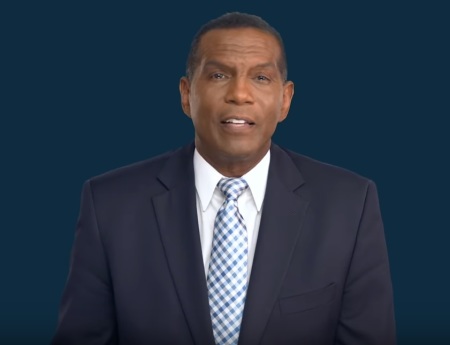NFL star Burgess Owens opposes reparations, says it goes against Judeo-Christian values

Former National Football League player Burgee Owens recently expressed opposition to the idea of reparations for slavery, at one point arguing that it goes against Judeo-Christian principles.
The former Super Bowl-winning defensive back, whose great-great-grandfather was a slave, denounced reparations in a video uploaded to YouTube on Monday by the popular conservative channel PragerU.
“Because of work I’ve never done, stripes I’ve never had, under a whip I’ve never known, these progressives want to give me money I’ve never earned,” he says.
“The fact that this money will be forcibly taken from others who also dreamed, worked, and sacrificed for it, I’m told is not my concern. But it is.”
Among his objections to reparations, Owens says “the reparations movement reinforces a view of racial relationships that undermines America’s Judeo-Christian foundation.”
“It defies the ideals of forgiveness and second chances and scorns individual accountability,” Owens continued.
He further argues that proponents of reparations think “black Americans are incapable of carrying their own burdens while white Americans must bear the sins of those who came before them.”
“Proponents do not take into account the majority of white Americans who never owned slaves, who fought to end slavery, or who came to America long after it was ended.”
In recent months, there has been renewed debate in some circles over whether the modern United States should financially compensate the descendants of African American slaves.
Arguments both for and against reparations for slavery have sometimes included appeals to biblical theology.
For example, Keri Day, associate professor at Princeton Theological Seminary, argued in a May lecture that reparations were built on biblical principles.
Day argued in her lecture that Jesus set forth a “reparations ethic” as seen in Luke 19 when Jesus encountered a tax collector named Zacchaeus.
“Zacchaeus is a tax collector who has participated in Roman imperial oppression against marginalized Jewish populations,” she said. “Zacchaeus is expected to give back that which he has stolen so that he can be reconciled with others and God. Reconciliation cannot occur until he has given back what he has stolen.”
In early September, Virginia Theological Seminary, an Episcopal Church seminary based in Alexandria, announced that it was setting aside $1.7 million for an endowment fund aimed at paying reparations for slavery.
The fund will help emerging congregations linked to the seminary, aid African American clergy, and support work by historically African American congregations.
The Rev. Joseph Thompson, director of the seminary’s Office of Multicultural Ministries, which will oversee the fund, said it “has the potential to be transformative.”
“Though no amount of money could ever truly compensate for slavery, the commitment of these financial resources means that the institution’s attitude of repentance is being supported by actions of repentance that can have a significant impact both on the recipients of the funds, as well as on those at VTS,” Thompson said.
“It opens up a moment for us to reflect long and hard on what it will take for our society and institutions to redress slavery and its consequences with integrity and credibility.”





















